Family Court Corruption Litigated without Fear or Favor by FCVFC
Nonprofit Exposes Court Failures, Defends Vulnerable Children and Parents
By Richard Luthmann
The Foundation for Child Victims of the Family Courts (FCVFC) tackles family court corruption, offering crucial support to parents and their children. Founded by Jill Jones Soderman, FCVFC employs legal, forensic, financial, and psychiatric experts to advocate for families affected by the Family Court Industrial Complex.
The Family Courts Are An "Abuse Industry"
By Richard Luthmann
For those of you who do not know Dr. Bandy Lee, she is an extraordinary woman. She is a forensic psychiatrist, violence expert, President of the World Mental Health Coalition (worldmhc.org), and a New York Times bestselling author.
FCVFC's work is vital in fighting systemic failures and demanding accountability. Their collaborative approach ensures that justice is pursued relentlessly, offering hope to those for whom the system has failed. Through their dedicated efforts, the Connectcut-based FCVFC advocates for justice and protection in Family Courts across the United States.
Exposing a System in Crisis
For over 60 years, family courts across the United States have faced accusations of child trafficking and racketeering. Instead of providing fair resolutions in marital disputes and custody battles, many courts have become nightmarish arenas for families. Judges, court-appointed officials, and lawyers are often complicit in these systemic failures.
Soderman's FCVFC fights back, providing comprehensive services to expose and litigate these injustices. The organization’s collaborative approach ensures thorough preparation and representation, aiming to secure justice for children and protective parents. FCVFC’s experts meticulously gather and protect evidence, challenging corrupt court practices and advocating for the vulnerable.
The FCVFC Value Proposition: Comprehensive Services and Resources
FCVFC presents a compelling value proposition for family court victims. The organization is a beacon of support for families and children, operating on several fronts. They offer a 24-hour helpline, litigation support, forensic analysis, and financial auditing. Thanks to their financial independence, the organization has been able to pursue justice relentlessly, free from many external pressures. This commitment to integrity and relentless advocacy makes FCVFC a beacon of hope for those navigating the corrupt family court system. Information is free, and the organization is more than happy to educate in furtherance of its charitable mission.
Is Your Child the Next Commodity? Shocking Claims of 'Designer Child Trafficking' in Family Courts!
By Richard Luthmann
NOTE: This is a recap of a recently released article on Frank Report entitled Designer Child Trafficking: Why Are the Family Courts Immune? David Weigel and Robert Emert, two fathers devastated by their Family Court experiences, accuse the system of engaging in what they describe as "designer child trafficking."
Additionally, FCVFC serves as a connector for a wide range of experts in various fields related to the family courts. The assessment team is a powerhouse of legal, forensic, financial, and psychiatric experts. These professionals work in tandem, preparing cases thoroughly and presenting solid evidence in court. This multidisciplinary approach starkly contrasts the piecemeal efforts often seen by individual lawyers, clinicians, and court-appointed personnel, who may fail to grasp the full scope of systemic corruption.
This team approach and comprehensive plan for results often come at costs significantly lower than the endless fees charged by attorneys, GALs, and the court system. By providing a unified front of legal, forensic, financial, and psychiatric expertise, FCVFC offers a holistic solution that addresses the complex and multifaceted nature of family court corruption.
Systemic Issues in Family Courts
Litigants describe family courts as biased and corrupt. Protective parents often face accusations of mental instability when they report abuse. Lawyers, instead of defending their clients, sometimes suppress critical evidence. FCVFC counters this by providing robust support, ensuring clients can present their cases effectively.
Young Girl Missing: Caught in the Web of Family Court Corruption?
By Richard Luthmann
Maya Moore, a 15-year-old honor student from Florida, finds herself at the center of a contentious custody battle between her father, retired military officer Michael Moore, and her biological mother, whom her father deems dangerous.
Soderman explains, “We do not retreat from the abuses and insults hurled by those who seek to silence the voices that expose crimes against children and families. Our structure and aggressive litigation practices protect evidence and address laws that advance justice.”
Exposing Judicial Corruption
The Foundation’s work highlights systemic issues within family courts. Institutional bias, racial and economic discrimination, and disenfranchisement are common. FCVFC's experts work tirelessly to address these injustices, often facing significant backlash from entrenched interests.
Success stories demonstrate FCVFC’s impact. Clients, initially told their cases were hopeless, find justice through the Foundation’s relentless advocacy. Despite the challenges, FCVFC continues to expose corruption and fight for vulnerable families.
Soderman recalls a typical case: “A mother came to us after being forced into joint custody with her abuser, a well-respected pediatrician. The courts ignored documented abuse, threatened witnesses, and suppressed evidence. We fought tirelessly for her and her children.”
Tragic Case of Judicial Failure
One particularly tragic case underscores the need for FCVFC. A mother separated from her abusive husband faced continuous legal battles to protect her children. The courts forced her into joint custody and unsupervised visitation with the abuser. Witnesses to the father's violence were threatened, and evidence was suppressed. Despite these challenges, FCVFC fought tirelessly, although tragically, the oldest son committed suicide.
“The abuse was horrendous,” said Soderman. “The mother never interfered with visitation, but the children refused to see their father. The court ordered police to use ‘all necessary force’ to enforce visitation, leading to traumatic scenes.”
Lawyers as Liabilities
FCVFC targets corrupt judges and shines a light on evil family court attorneys. The organization has established the "Rogues’ Gallery" to expose judges who act against children's best interests. Similarly, FCVFC acts as fearless whistleblowers against family court attorneys who fail to advocate for the children whose lives and futures are at stake.
Soderman explains, “Attorneys should be protectors of the vulnerable, not silencers of the truth. We expose those who betray their clients for personal or systemic gain.”
The Rogues Gallery displays family court judges that have come to the attention of FCVFC for biased and unjust decisions. The gallery includes detailed reports on each judge’s activities and any motions for recusal, highlighting cases where judges ignored crucial evidence, used threats and coercion, or acted as bill collectors rather than impartial arbiters of justice.
By thoroughly scrutinizing court transcripts and researching judges’ backgrounds, FCVFC holds these judicial decision-makers accountable.
Controversy Surrounding Parental Alienation Syndrome
Parental Alienation Syndrome (PAS) and related concepts have long been contentious in family court proceedings. Dr. Richard Gardner introduced PAS in the 1980s, suggesting one parent could manipulate a child into unjustly rejecting the other parent. Some say the legal theory lacks empirical support. Nonetheless, Gardner’s views on PAS gained traction.
FCVFC opposes the use of PAS in family court, arguing it often dismisses credible abuse allegations. Soderman states, “Theories like Gardner’s have facilitated a system where genuine concerns of abuse are overshadowed by false claims of parental alienation.”
Critics view FCVFC's stance as controversial, especially those who believe PAS provides a necessary framework for understanding and addressing complex family dynamics.
In a disputed report to the United Nations, Reem Alsalem, Special Rapporteur on violence against women and girls, highlighted misuse of PAS. The report noted that family courts often ignore histories of domestic violence, leading to "double victimization" of women and children.
“The concept of parental alienation is widely used to negate allegations of domestic and sexual abuse within family court systems on a global scale,” Alsalem stated.
Response by Parental Alienation Proponents
Proponents of Parental Alienation strongly criticize Alsalem's report. The Parental Alienation Study Group’s (PASG) analysis accuses it of containing misleading statements, extensive misinformation, and blatant errors. They argue that the report constitutes a deliberate attempt to mislead mental health professionals, legal professionals, and policymakers.
Proponents claim that the report employs science denial techniques and misrepresents the current state of peer-reviewed research on parental alienation. “The report is unreliable and dangerous,” they state, warning that its misinformation could cause irreparable harm to children and families.
The analysis highlights what proponents see as pervasive bias in the report. They point out that the Special Rapporteur repeatedly refers to PA as a "pseudo-concept" and relies heavily on submissions from PA critics while ignoring those from proponents. They assert that the report fails to acknowledge the painful experiences of PA victims and instead promotes a conspiracy theory against PA proponents.
Proponents also criticize the report for violating the principles of the Human Rights Council’s Code of Conduct. They argue that the report’s primary goal is to encourage states to ban PA theory in legal proceedings, driven by an anti-PA bias and misinformation.
Tying it All Together
FCVFC believes that Dr. Gardner's theories, including Parental Alienation Syndrome, contribute significantly to the systemic corruption in family courts today. Not everyone agrees. However, according to FCVFC, Gardner's concepts have provided a framework that corrupt officials use to dismiss genuine abuse allegations, thereby protecting abusers and perpetuating a cycle of victimization.
To combat this, FCVFC is adding financial experts to its assessment team to audit and evaluate controversial family court machinations and litigate, prosecute, and remunerate victims of family court corruption and abuse. This multidisciplinary approach strengthens FCVFC's ability to uncover and challenge the deeply embedded corruption within the family court system.
If you or someone you know is a victim of the family courts and you do not know where to turn, you can contact FCVFC at (866) 553-6931.


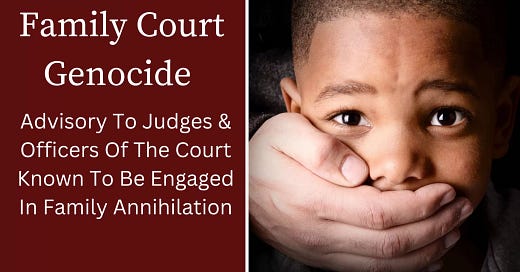


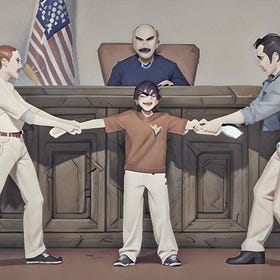

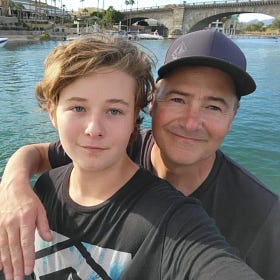
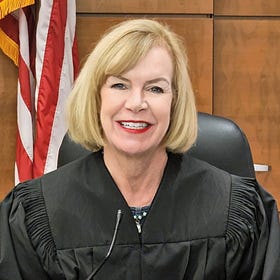

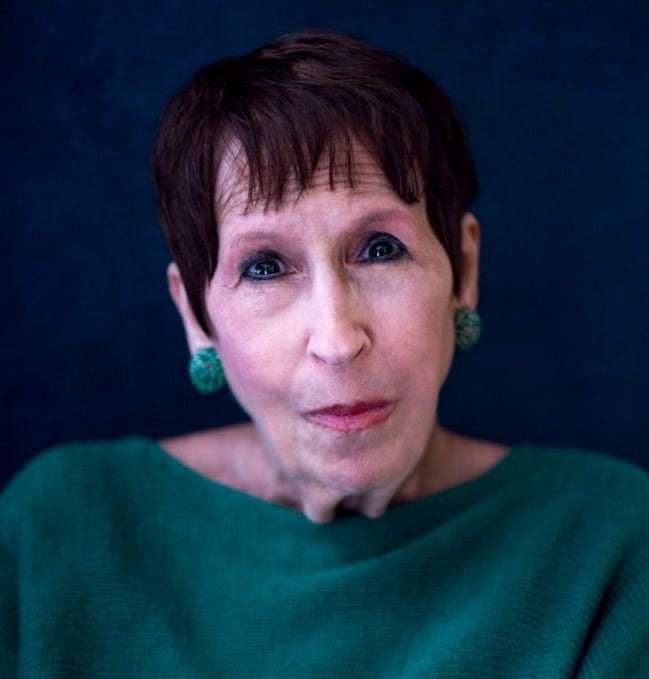

I would really appreciate any information on this non profit as I am facing some similar circumstances highlighted in your article and have not been able to find much if any support in the 7 years I've dealt with a contentious custody battle involving a high ranking member of the military.